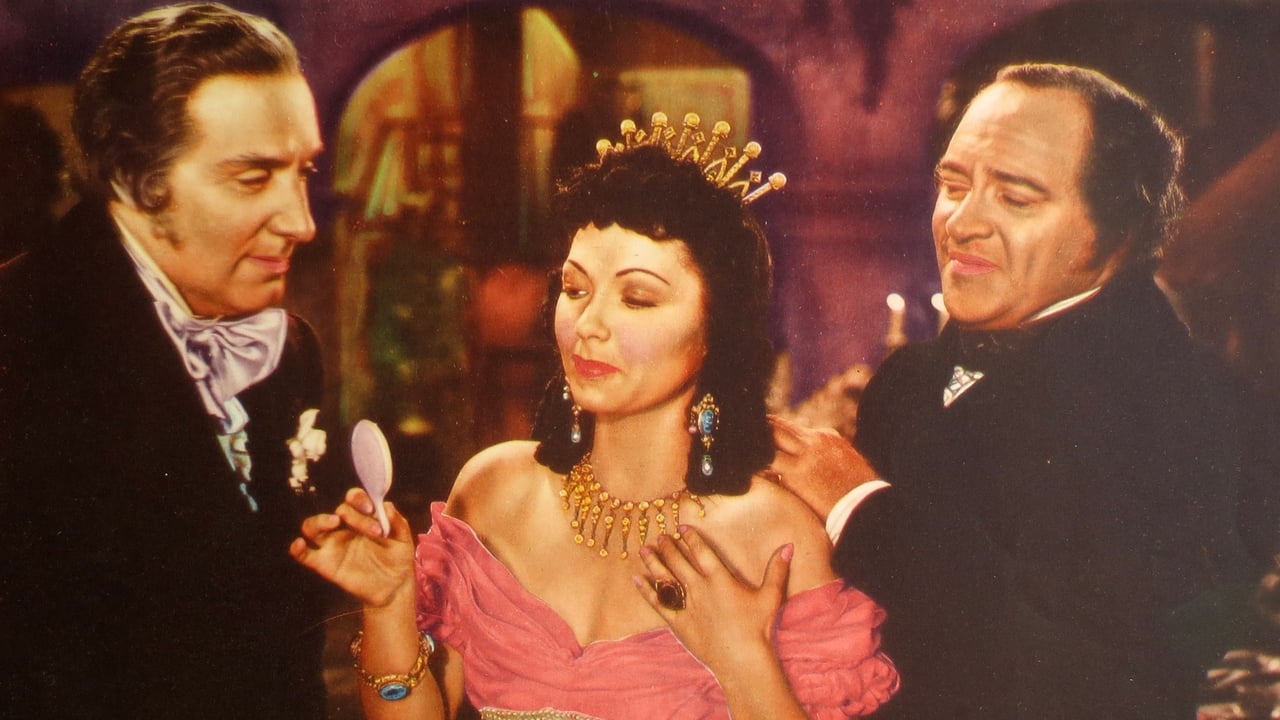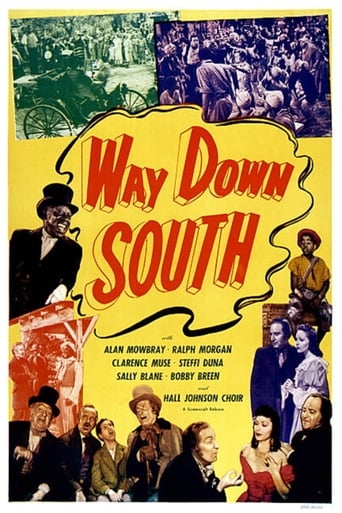

An orphan in pre-Civil War Louisiana fights to save his late father's plantation (and his slave friends!) from a crooked lawyer's machinations. Oh boy will this one set some alarms off today. Probably the only reasons it isn't more hated is that (a) it is not as well-known as, say, Song of the South and (b) the script was written by two black men -- noted poet Langston Hughes and actor Clarence Muse, who also appears in this film as Uncle Caton. The star of the movie is Bobby Breen, a Canadian-born soprano with a brief acting career who is just about the corniest thing I've ever seen. The rest of the cast includes Alan Mowbray, Ralph Morgan, Matthew 'Stymie' Beard, Sally Blane, Edwin Maxwell, and the aforementioned Clarence Muse, who is probably the best part of the film.It's not a bad movie if one can put aside one's political correctness. The short runtime helps. I'm not saying it's great or anything. Breen is an acquired taste and the depiction of slavery is...well, controversial is the kindest way of putting it. That being said, the slaves are positive sympathetic characters all and written with more respect than is usual for the period. That is likely thanks to Hughes and Muse. One also has to wonder if some hidden meaning was in the scene where Ralph Morgan's "friendly massa" character dies. Watch and you'll probably see what I mean. There's some singing, as you might expect from a movie starring a boy soprano. Frankly, I enjoyed the singing from the Hall Johnson Choir more than Breen. The historical qualities of the film alone should warrant viewing but it does have entertainment value, as well. I encourage everyone who is interested to give it a shot and judge for yourself instead of making up your mind before seeing it. The same goes for any old film that is considered controversial or offensive today.
... View MoreThis small, unpretentious, but very wonderful film from the combined pens of Langston Hughes and actor Clarence Muse is one of the very few films that deals with slavery and from the point of view of the slave. Remarkable also that this came out in the same year as Gone With The Wind which dealt with the lost Confederacy which founded on the notion of keeping slavery alive in North America.Muse and Hughes also borrowed a great deal from Mark Twain's Huckleberry Finn in developing the relationship of the young master Bobby Breen and house servant Muse. Breen while still a minor child inherits father Ralph Morgan's plantation and unfortunately an executor in the person of Edwin Maxwell. Maxwell wants to basically loot the estate, in the meantime he hires a very cruel overseer in Charles Middleton. When Muse does voice some mild objection to new policies instituted, Maxwell says he'll sell him. Breen and Muse make an escape worthy of Huck Finn and Jim and with Muse in drag and a veil they check into a posh New Orleans hotel operated by Alan Mowbray who is a Creole character out of Charles Dickens. Eventually they learn that Maxwell just wants to sell all the slaves and take the profits and run. Of course the slaves who have families don't have any say in the matter. In fact some whippings are dished out by Middleton though we never actually see one.The Hall Johnson Choir play the plantation slaves and they have several numbers singing Negro spirituals both happy and sad depending on the mood of the film. Breen also sings some songs like Oh Dem Golden Slippers and Sometimes I Feel Like A Motherless Child with the Choir. Also at Mowbray's dinner table Breen sings Stephen Foster's Some Folks Do which was my favorite musical number.This film should be seen and revived as a great treatise on the slave experience. There is some stereotyping, but it's done in the context of the condition and servitude of the slaves and there is never any demeaning of anyone in this film. And when you've Langston Hughes and Clarence Muse taking some inspiration from such authors and Twain and Dickens you know this film is something special. A lot of people in this cast from Bobby Breen on down got career roles here. Way Down South should be bought or rented at Amazon, it's a wonderful and moving viewing experience.
... View MoreWay Down South (1939) ** 1/2 (out of 4) Interesting race picture from RKO features two black writers (Clarence Muse, Langston Hughes) doing the screenplay. Set before the Civil War, a plantation owner dies leaving his farm and slaves to his young son (Bobby Breen). Soon an executive comes into play and tries to sell the slaves but the young kid won't stand for this as the slaves are his only friends. It's interesting to see a Hollywood picture from this era treating blacks with any sort of respect and in many ways it's more respectful than many of the other race pictures that I've seen, which were made by black directors. The film only runs 61-minutes so the drama of slavery isn't ever really looked at and the film would later be criticized by the NAACP for showing "happy slaves". The films main goal is to have a spotlight for the young Breen and he's pretty good here, although his musical numbers aren't anything special.
... View MoreAt times this movie is brilliant beyond my powers of description to note. At other times it turns stupid. Langston Hughes' poetry and powerful images dominate some scenes. At others we have the sight of Clarence Muse in a dress and veil, or Bobby Breen advancing the plot while Alan Mowbray does his best to make it interesting by a little judicious mugging. Even the musical numbers are erratically choreographed. The last may have been an attempt to either appease white audiences who would never see this movie or a choreographer utterly ignorant of jazz dancing. In 1939? It doesn't make sense. Perhaps it was shot, edited, tested and then someone else went back to do some ham-handed reshooting.The problems I have with the execution of this movie cannot be denied, but its strengths are likewise undeniable. Take a look at it and bear in mind that this was released in he same year as GONE WITH THE WIND.
... View More